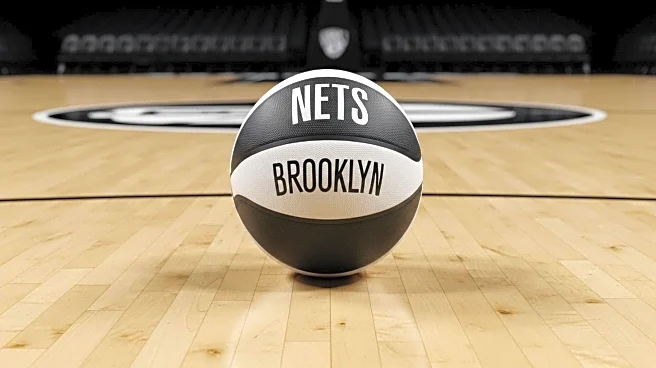What's Happening?
The Brooklyn Nets have signed free agent guard Yuri Collins to a one-year standard contract with a partial guarantee of $85,300. This move is part of a series of similar contracts, including those with David Muoka and D’Andre Davis. Collins, a 6'0" point guard, went undrafted out of St. Louis in 2023 and has played in the NBAGL with the Santa Cruz Warriors. His performance improved significantly in the 2024/25 season, where he averaged 13.7 points, 10.2 assists, 3.5 rebounds, and 1.3 steals per game. Collins led the G League in assists per game last season and briefly joined the Golden State Warriors on a 10-day contract, making his NBA debut. The contracts for Collins, Davis, and Muoka are expected to function like Exhibit 10 contracts, with all three likely joining the Long Island Nets.
Why It's Important?
The signing of Yuri Collins and similar contracts are strategic moves by the Brooklyn Nets to ensure their team salary exceeds the minimum salary floor by the start of the season. This is crucial as Brooklyn is currently the only NBA team operating below the salary cap. The partial guarantees, while counting against the cap, help the Nets manage their financial obligations while retaining promising talent for their G League affiliate. This approach allows the Nets to develop players like Collins, who have shown potential in the G League, without significant financial risk.
What's Next?
Yuri Collins is expected to join the Long Island Nets for the 2025/26 season, where he will continue to develop his skills in the NBAGL. The Nets will monitor his progress and that of other players signed under similar contracts to assess their potential for future NBA contributions. The team's management will also focus on maintaining compliance with salary cap regulations while exploring opportunities to strengthen their roster.
Beyond the Headlines
The Nets' strategy of signing players to partially guaranteed contracts reflects a broader trend in the NBA where teams leverage the G League to develop talent cost-effectively. This approach not only aids in player development but also provides financial flexibility, allowing teams to navigate salary cap constraints while building a competitive roster.








